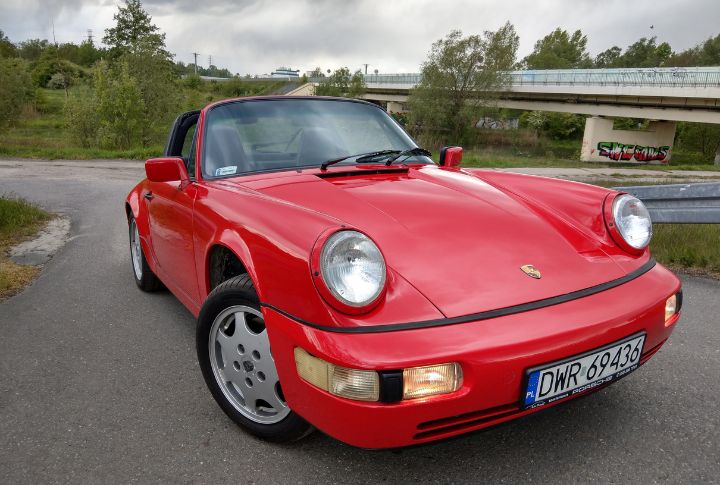
15 Cars That Went From Unloved To Classics Over Time

Today’s outcast might be tomorrow’s classic in the world of cars. Some vehicles launch to lukewarm reception, with features that fail to capture the public’s imagination. However, opinions can shift as time passes, and the quirks and characteristics that once made a car unpopular become why it is celebrated. Below are 15 cars that started as unloved oddities but have since become cherished classics.
Volkswagen Beetle

The Volkswagen Beetle producers intended it as an affordable car for the masses. Still, its unusual, rounded shape and modest power didn’t resonate with everyone, especially in the United States, where bigger was often seen as better. However, the Beetle’s simple design and reliability eventually won over the public, especially during the 1960s counterculture movement. Today, the Beetle symbolizes the era and is a highly sought-after classic.
Porsche

Early models of the Porsche 911 received criticism for their rear-engine layout, spartan interiors, high price, and challenging handling. Over time, however, the 911’s exceptional engineering, performance, and distinctive design earned it a loyal following. Now, it’s considered one of the most iconic sports cars in history, with classic models commanding high prices at auctions.
Chevrolet Corvair

The Chevrolet Corvair was launched in 1960 as a daring American car with a rear-mounted, air-cooled engine. However, safety concerns—most famously highlighted by Ralph Nader in his book Unsafe at Any Speed—tarnished its reputation. Despite this, Corvair has since gained appreciation for its innovative design and engineering, which is a unique piece of automotive history.
Ford Mustang II

Often derided as a departure from the original Mustang’s spirit, the Mustang II has gained an appreciation for its role in keeping the nameplate alive during the fuel crisis era. Initially, enthusiasts dismissed it as a pale imitation. However, its lightweight design and retro styling have won a new generation of fans, making it a quirky, sought-after classic today.
Datsun 240Z

When the Datsun 240Z debuted in 1969, it was viewed with skepticism, primarily because it was a Japanese sports car in an era dominated by European and American brands. But its design, performance, and affordability earned it respect. Now recognized as the car that brought affordable sports cars to the masses, the 240Z is celebrated as a pioneering classic.
AMC Gremlin

Once mocked for its chopped-off rear end and unconventional styling, critics now appreciate the AMC Gremlin as a quirky representation of 1970s American car design. Its compact size and relative rarity have contributed to its status as a collector’s item and cult following.
Ford Pinto

Introduced as an affordable compact car in the early 1970s, the Ford Pinto became infamous for its dangerous design flaw that could cause the gas tank to explode in rear-end collisions. Despite this dark chapter, the Pinto gained iconic status. Enthusiasts now restore these cars, recognizing them as emblematic of a significant era in American automotive history.
Porsche 914

When the Porsche 914 was released, it faced criticism for its un-Porsche-like appearance and its Volkswagen-sourced engine in the base model. Many considered it inferior in the Porsche lineup and the “poor man’s Porsche.” Over the years, however, its rarity and connection to both brands have boosted its classic status.
Triumph TR7

The wedge-shaped TR7 dramatically departed from traditional British sports car design, leading to mixed reception. It also suffered quality issues, which diminished its appeal. However, its bold styling and the nostalgia for British sports cars have led to a resurgence in interest, with the TR7 now an emblem of 1970s automotive design.
Jeep Wagoneer

While initially seen as a niche vehicle with a limited market, the Wagoneer’s true classic status emerged years after production ended. It’s now a pioneer of the luxury SUV segment, with its wood-paneled versions sought after. Its long production run and evolution made it valuable among those nostalgic for the original SUV era.
Chevrolet El Camino

When first introduced in the late 1950s, this car-truck hybrid was polarizing. With its half-car, half-truck design, it was neither fully embraced by car enthusiasts nor truck buyers. However, the growing appreciation for vintage American cars and their unique utility has turned the El Camino into a respected classic, celebrated for its distinctive design and versatility.
Fiat 124 Spider

The Fiat 124 Spider arrived in the mid-1960s as an affordable Italian roadster. Despite its attractive design, it struggled to compete with British rivals like the MG and Triumph, and its reputation for reliability issues didn’t help matters at all. But its elegant Pininfarina styling and enjoyable driving dynamics have made it a cherished classic, with restored models being particularly desirable.
Ford Cortina

Once a common sight on British roads, the Cortina was first received as a practical, family car devoid of real excitement. But it has become a symbol of 1960s and 1970s British motoring. Its success in touring car racing has enhanced its appeal. Today, Cortina’s appreciation stems from its simple, functional design and role in Ford’s European history.
Renault 4

Originally designed as a “people’s car” for France, the Citroën 2CV sometimes overshadowed the Renault 4. However, its practical design proved innovative, including a rear hatchback and fold-down seats. With over 8 million units produced over 31 years, it has become an icon of French automotive ingenuity.
AMC Pacer

Often ridiculed for its unconventional “fishbowl” design, the Pacer was ahead of its time in many ways. Its wide body and ample glass area provided excellent visibility and interior space. While initially criticized, these features are today embraced as forward-thinking. The Pacer’s unique aesthetics have made it a cultural icon, featured in films and TV shows.


